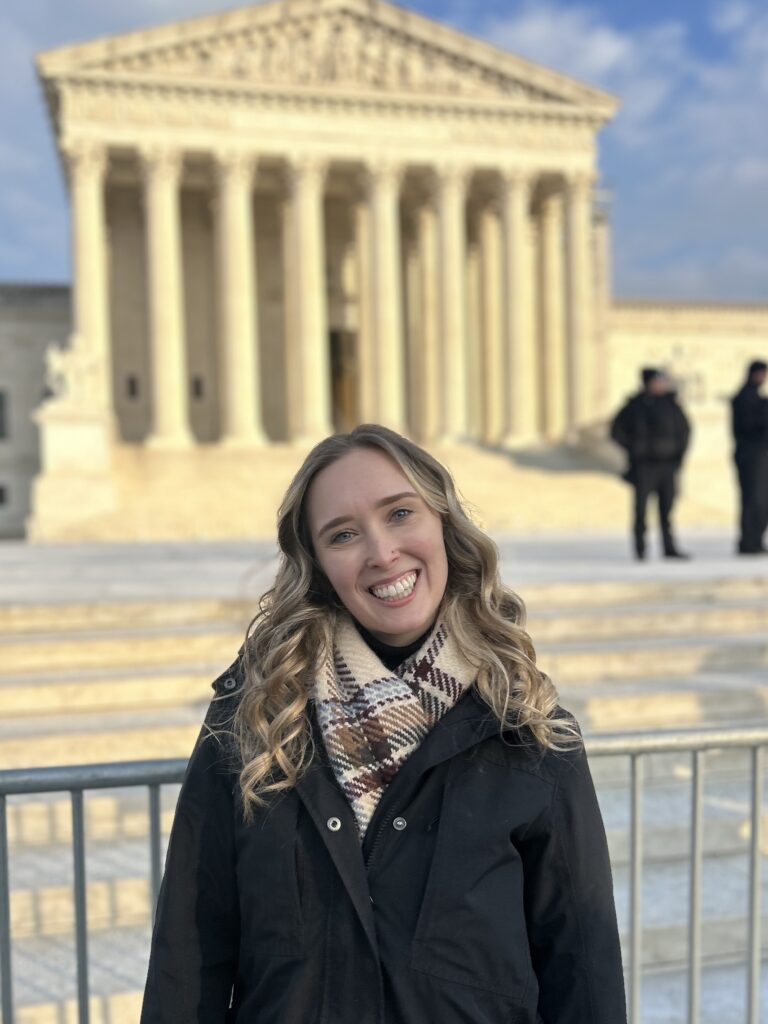For both Catholic and non-Catholic Christian refugees, many are escaping religious persecution so severe they are killed just because of their faith

For two reasons, January was a teachable month. Catholics like me participated in the massive March for Life in Washington, carrying signs proclaiming our love for all human life. Our signs read “created equal” and “pro-life for the whole life.”
We also witnessed crackdowns on illegal immigration. A recent executive order halted all refugee admissions into the United States for at least the next 90 days and cut off federal funding to refugee resettlement programs.
Catholics optimistically yet cautiously awaited this year’s change in federal government, likely due to the expected positive aspects of the incoming administration, such as pardoning of peaceful pro-life prisoners and deporting of migrants who commit crimes.
However, distinguishing unauthorized migrants from legal refugees is critical. Under the Immigration and Nationality Act, refugees in America are considered legal immigrants and must fall under specific qualifications that consider them a special humanitarian concern.
This recent executive order lumping in refugees displaced from war, persecution, and other forms of violence under the same risk as unauthorized immigration is unnecessarily cruel and defies public opinion on refugee admissions.
With the assistance of the Catholic Church, America has historically resettled more refugees annually than any other country. Over the last two decades, refugees in America have mostly originated from Myanmar, Somalia, Iraq, the Democratic Republic of Congo, Haiti, and Bhutan, where refugees flee either civil wars or gang-rampant, deathly corrupted cultures.
For both Catholic and non-Catholic Christian refugees, many are escaping religious persecution so severe they are killed just because of their faith. In recent years, refugees often include Ukrainians, Syrians, Sudanese, Afghans, and more, resulting from increases in deadly armed conflicts worldwide.
Despite horrific circumstances, refugees risk their lives to come to the U.S. and spend years going through the legal process to enter our country. In some cases, refugees wait in camps or temporary settlements for five years or more as they await approval for resettlement. Often, children are born into refugee life, and it is through coming to the U.S. or another country of approval that they are finally granted what we would consider a “normal childhood.”
Despite recent attempts to assure Americans the current federal government will not stifle pro-life and pro-family policies at the 2025 National March for Life, abandoning refugee resettlement programs sends the opposite message. Such programs are dedicated to not only improving the quality of life for refugee families but protecting their very survival.
Even after new immigration restrictions were enacted after the change of administration, refugees who arrived here beforehand still need services. Organizations like Catholic Charities, the largest refugee resettlement agency in New York state, expected to continue serving refugees and remains committed to doing so but will likely struggle after losing funding.
“The funding freeze means these families no longer have support for immediate needs such as shelter, food, and transportation; it also jeopardizes Catholic Charities’ ability to connect them to housing, health, education, employment, and other key services designed to place them on a path to self-sufficiency,” Catholic Charities announced.
At Catholic Charities, it is common for staff members to be former refugees themselves. Obaida Omar, an employee in the Rochester program and former refugee from Afghanistan, spent three weeks dodging bombs to cross the border into Pakistan. There she spent 12 years in a refugee camp before coming to the U.S., where she is now happily married with children and working as a social worker. She “cherishes her role as mother to three children” and uses her “lived experience to help others.”
Also in Rochester, New York, Father Tony Mugavero from Holy Apostles Church told his parish in his March for Life weekend homily that society needed to “connect the dots” between two pressing social issues: abortion and immigration.
He explained that the same principle of “welcoming the stranger” must be applied to both the unborn child, who enters the world through its mother’s womb, and the displaced refugee, a victim searching desperately for a peaceful life.
“You treat them as native-born,” he said regarding immigrants. “This instruction is as relevant now as ever…God has set a high standard for those who are foreigners. People are to love them like we love ourselves and treat them as citizens.”
Interestingly, last week the Inter-American Court of Human Rights, an international court that works to protect the rights of refugees and migrants in the Americas, also rejected the abortion lobby’s attempt to establish a “right to abortion” in Latin American countries. Such a decision sets a transnational precedent that the value of human life does not depend on its location, whether it is being formed in a mother’s womb or displaced from its home country.
For many Catholics, to be pro-life is for the whole life, an ethical philosophy first articulated by a Catholic himself, Cardinal Joseph Bernardin. Today society knows of this idea as “the consistent ethic of life.” Catholics should seek to transform American culture to uphold the dignity of life and family, meaning we must hold our government’s actions consistent with the sanctity of life. Despite a person’s littleness or supposed weakness, all are worthy of the right to life, and steps must be taken to enhance the survival of the born and unborn, the native and foreign.
—–
Sarah Prentice is a recent Catholic convert and staff member at Feminists Choosing Life of New York, a statewide human rights organization that promotes pro-life feminism and a consistent life ethic.


